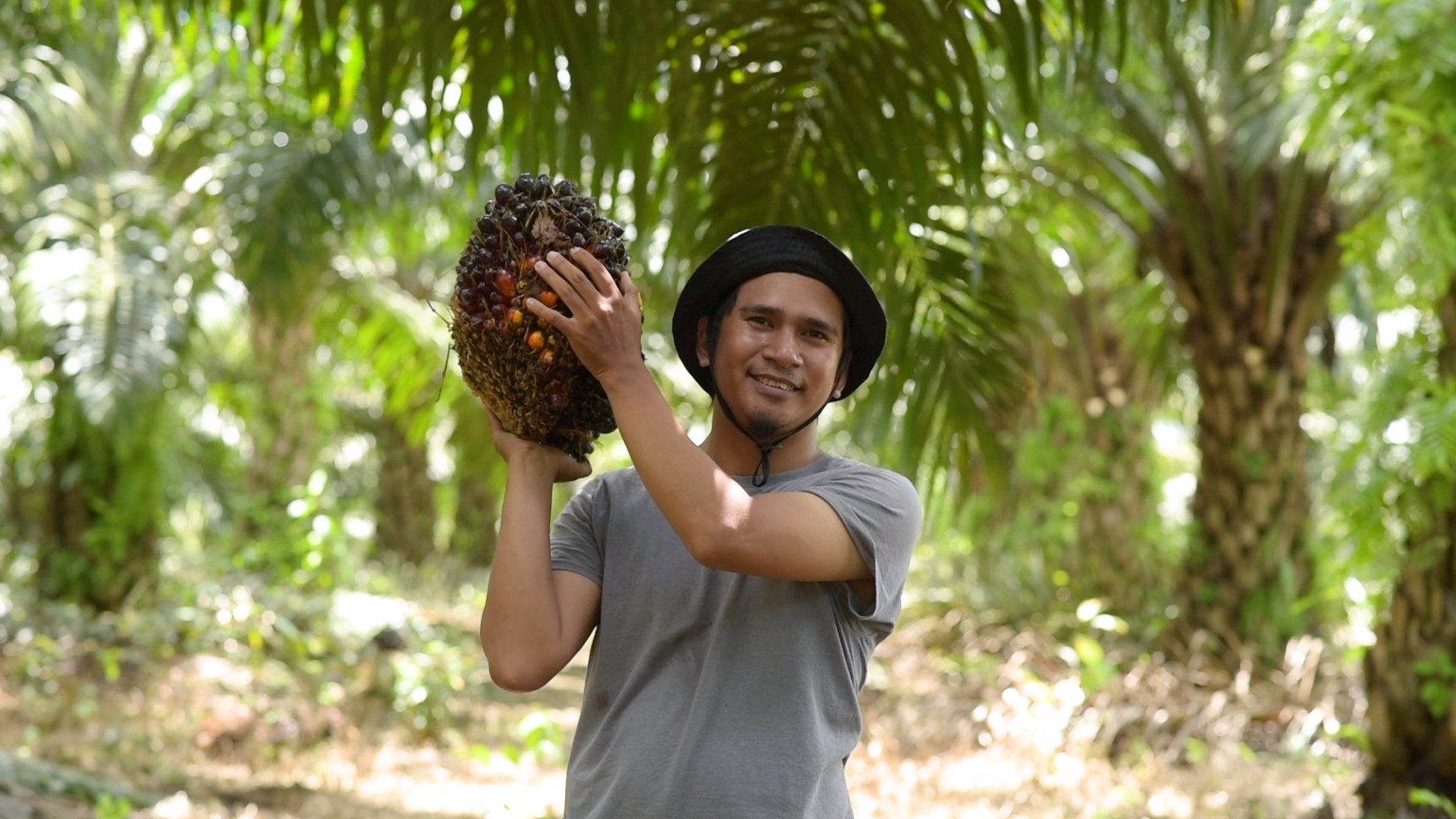Do you sometimes eat peanut butter, pizza, chocolate or margarine? And do you have detergents, cosmetics and maybe baby food in your home? If so, chances are that you – like the rest of the world – regularly use palm oil. One of the main reasons why it is found in so many products is the price. However, this cheap product also has a few downsides.
The challenges of palm oil
For the production of palm oil, large areas of tropical rainforest are being cut down in countries such as Indonesia and Malaysia. And that’s not all: there are also concerns about labour relations and land conflicts on the palm oil plantations, and about the waste discharged into rivers. The first thought that enters your mind is probably ‘stop the trade’. But would that really be the best solution?
Why not stop the trade?
If we were to replace all the palm oil in the world with other oil, we would need much more farmland for the same production volume. And that would also imply cutting down a lot more tropical rainforest. Besides, the cultivation of palm oil requires relatively little water, fertilizer and pesticides. Now, what else can we do?
Engagement is the key to sustainability
Zwitserleven, as well as asset manager ACTIAM, believe that palm oil has a future, provided that it is produced sustainably. If we want to achieve this, it is vital to enter into a dialogue and cooperate with palm oil producers. After all, this is how we can have an impact and insist on making the sector more sustainable, while also steering it in the right direction.
Our approach
In 2014 we started engagement talks in the palm oil sector. These talks always start by defining the goals we want to achieve with a company or country. One of the goals could be, for example, the development of a policy to stop deforestation. And also to achieve full transparency of, and insight into, the supply chain. ACTIAM is also part of the advisory committee of the international Principles for Responsible Investment (PRI) Investor Working Group on Sustainable Palm Oil. With this working group, ACTIAM enters into engagement talks with other investors. These actions are mainly focused on influential companies that can bring about a behavioural change in the palm oil sector.
What we have achieved so far
This engagement strategy has made Wilmar International, one of the most influential traders in palm oil, introduce a so-called NDPE policy. This means that for the palm oil they trade, no more rainforest and peatland is destroyed and no human rights are violated. Wilmar International also uses high-resolution satellite images to chart possible deforestation by suppliers. The chain of Golden Agri-Resources, another major player in the palm oil sector, is 100% traceable, from plantation to processing.
The future
We have already taken quite a few steps towards making the palm oil sector more sustainable. But there is still work to be done. Cultivation methods can be made more sustainable, fewer artificial fertilizers can be used and labour conditions can be improved. That is why we will continue to monitor the progress that is being made and use our influence to make palm oil more sustainable.
Contributing to a sustainable world
Zwitserleven believes that the financial sector should take a leading role in the development of a more sustainable world. Together with ACTIAM, our asset manager, we are working on a better world. We do so by being critical of the companies and countries we invest in. Our partners are selected on the basis of sustainable criteria before we set up talks with them. And we will always take a critical look at their policy and point out what could be improved. With the aim of achieving a structural behavioural change for a sustainable world. We regularly share what we are doing in this area.
This article is published on





